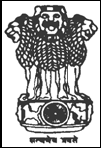National Chemical Laboratory, Pune, is one of the top R&D institutions in the country. With approximately 200 scientific staff working here, it is an interdisciplinary research center with wide research scope and specializes in polymer science, organic chemistry, catalysis, materials chemistry, chemical engineering, biochemical sciences and process development. It houses good infrastructure for measurement science and chemical information.
There are about 400 graduate students pursuing research towards doctoral degree; about 50 students are awarded Ph.D. degree every year. NCL publishes over 400 research papers annually in the field of chemical sciences and over 60 patents worldwide. It is a unique source of research education producing the largest number of PhDs in chemical sciences within India.
InnoVidya and IUCAA present a talk by Dr. Sourav Pal, the current Director of NCL, on Research and Development in Publicly Funded Laboratories in India, on Saturday, 23 Aug, 2014, at Bhaskara 3 Hall, IUCAA. This is the next talk in the InnoVidya/IUCAA SPARK lecture series.
Abstract of the talk:
Publicly funded Research and development laboratories play a major role in promoting scientific research and development of technology in India. In this presentation, Dr Pal will relate his experiences of working in such laboratories and presently as Director, NCL. He will highlight the role of these institutions in leading scientific research. He will bring out the expectations that the Government has from such publicly funded institutions.
About the Speaker – Dr. Sourav Pal
Dr Sourav Pal is the Director, of National Chemical Laboratory (NCL), Pune, and Director, Central Salt and Marine Chemicals Research Institute (CSMCRI), Bhavnagar. He holds an integrated Masters degree in Chemistry from Indian Institute of Technology, Kanpur, and a Ph.D. from Calcutta University. He was a post-doctoral fellow at the University of Florida, Gainesville, USA and an Alexander von Humboldt Fellow at the University of Heidelberg, Germany . He was a visiting Professor at the University of Arizona, Tucson, USA and at the Institute for Molecular Sciences, Okazaki, Japan. Dr. Pal has been recognized by several awards and honours for his contribution to science and technology including the prestigious Shanti Swarup Bhatnagar Award in Chemical Sciences, the SASTRA-CNR Rao Award in Chemistry & Materials Science. He is a Fellow of all the three National Academies of Science in India and the Royal Society of Chemistry, UK. He has published over 215 papers in peer-reviewed international journals, guided over 25 Ph D thesis, delivered more than 100 lectures in important conferences and is serving on the editorial boards of international journals.
About the InnoVidya IUCAA Spark Program
The SPARK program is a series of events jointly conducted by InnoVidya and IUCAA. These are special events that <spark> imagination & curiosity of our young, build bonds between participants of different disciplines, catalyze interactivity & promote peer links
About InnoVidya
InnoVidya is a group of educators and industry professionals who want to reach out to students, teachers, trainers and working professionals and catalyze significant improvements in their learning ecosystems. In addition to the InnoVidya website and the InnoVidya mailing list, we also hold public lectures on the 4th Saturday of every month. Lectures usually involve talks by senior educators, industry visionaries, or social and/or for-profit entrepreneurs working in the space of higher education.
If you’re interested in the state of education in India, please subscribe to get updates by email
Event Details
The event is on Saturday, Aug 23, 2014, at 11am, at the Bhaskara 3 Hall, IUCAA, at University of Pune campus.
Fees and Registration
This event is free and open for anybody to attend. Register here. There is ample parking at the venue.


 The
The 
![Reblog this post [with Zemanta]](http://img.zemanta.com/reblog_b.png?x-id=70a47db9-0c0b-435e-8e38-b2916845e08d)